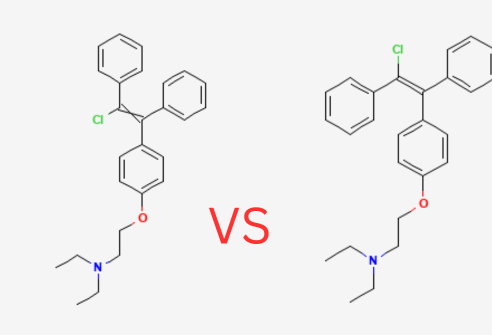Yes, fasting may lower testosterone levels in men and women. However, research on the matter is mixed and more studies are needed to conclusively prove that fasting has a substantial effect on testosterone levels in men and women.
If you have more questions about your testosterone levels, please reach out to us today!

Evidence Linking Fasting to Reduced Testosterone Levels
Studies in Young, Lean, and Active Males
Research has shown that intermittent fasting can reduce testosterone levels in young, lean, and physically active men. One study observed that testosterone concentrations were significantly lower in this demographic after intermittent fasting. This suggests that while fasting might provide metabolic benefits, it could negatively impact hormonal balance in certain groups.
Effects of Intermittent Fasting on Resistance-Trained Men
In resistance-trained men following a 16/8 intermittent fasting regimen (eating within an 8-hour window and fasting for 16 hours daily), significant reductions in testosterone levels were noted. This finding raises questions about the compatibility of intermittent fasting with maintaining optimal testosterone levels, particularly for those who engage in regular strength training.
Nine Days of Intermittent Fasting
Another study found that men’s testosterone levels decreased significantly after just nine days of intermittent fasting. While short-term fasting may have specific benefits, this study underscores the potential for hormonal disruptions when fasting is sustained over a longer period.
Long-Term Fasting and Resistance Training
Research also highlights that combining long-term intermittent fasting with resistance training can reduce testosterone levels. However, this approach was also associated with improvements in other health markers, such as body weight, fat mass, inflammation, and insulin sensitivity. This suggests that while testosterone levels might decline, the overall health benefits of fasting could outweigh this hormonal effect in certain contexts.
Factors Influencing Testosterone Responses to Fasting
The impact of fasting on testosterone levels is not uniform and depends on several factors:
Duration of Fasting
Short-term fasting (e.g., 24 hours) has been shown in some studies to increase circulating testosterone levels. In contrast, longer fasting periods, such as those practiced in intermittent fasting routines, appear to have the opposite effect in many cases. This discrepancy highlights the importance of considering fasting duration when evaluating its hormonal effects.
Individual Characteristics
Individual differences, such as age, body composition, activity level, and baseline hormonal health, play a significant role in how fasting impacts testosterone. For example, lean and physically active men are more likely to experience reductions in testosterone during intermittent fasting, while obese individuals may see improvements in testosterone levels as a result of weight loss achieved through fasting.
Pre-Existing Health Conditions
Men with conditions such as obesity, metabolic syndrome, or type 2 diabetes may benefit from the hormonal changes induced by fasting. In these populations, the weight loss and improved metabolic health associated with fasting may indirectly boost testosterone levels over time by reducing factors like inflammation and insulin resistance.
Dietary Context and Training
The type of diet consumed during eating windows and the intensity and frequency of physical training can also influence how fasting affects testosterone. A nutrient-dense diet and well-structured exercise routine may mitigate some of the hormonal declines seen in fasting studies.
Mechanisms by Which Fasting May Impact Testosterone Levels
The exact mechanisms underlying the relationship between fasting and testosterone remain under investigation. However, researchers have proposed several pathways that may explain these effects:
Luteinizing Hormone (LH) Regulation
Luteinizing hormone (LH) is a key player in testosterone production. Fasting may alter the hypothalamic-pituitary-gonadal axis, which regulates LH release and, consequently, testosterone production. Changes in LH levels during fasting could directly impact testosterone output from the testes.
Insulin Sensitivity and IGF-1
Insulin sensitivity and insulin-like growth factor 1 (IGF-1) are closely linked to hormonal balance. Fasting often improves insulin sensitivity, which can have downstream effects on testosterone. IGF-1, which is involved in anabolic processes, may decrease during prolonged fasting, potentially leading to reduced testosterone levels.
Stress Hormones and Cortisol
Fasting can trigger stress responses, leading to an increase in cortisol levels. Elevated cortisol is known to suppress testosterone production. This stress-induced hormonal shift may explain some of the reductions in testosterone observed in fasting studies.
Energy Availability
Testosterone production is highly sensitive to energy availability. Fasting creates an energy deficit, which may signal the body to prioritize survival functions over reproduction, leading to a temporary decrease in testosterone levels.
Potential Benefits of Fasting for Testosterone in Specific Populations
While much of the recent research emphasizes the testosterone-lowering effects of fasting, certain populations may experience benefits under specific conditions. For instance:
Obese Individuals
In men with obesity, fasting-induced weight loss can lead to improvements in testosterone levels over time. Excess fat tissue is associated with higher levels of aromatase, an enzyme that converts testosterone into estrogen. Losing fat through fasting can reduce aromatase activity, potentially leading to higher circulating testosterone levels.
Short-Term Fasting
Studies have indicated that short-term fasting (e.g., a 24-hour fast) may increase testosterone levels. This effect could be due to temporary increases in LH or reductions in insulin levels, both of which can positively influence testosterone.
Improved Metabolic Health
Fasting’s ability to reduce inflammation and improve insulin sensitivity may indirectly benefit testosterone production, particularly in men with metabolic health issues. These improvements create a more favorable hormonal environment for testosterone synthesis.
Balancing Fasting and Testosterone: Practical Tips
For individuals concerned about the potential impact of fasting on testosterone, there are ways to balance the benefits of fasting with maintaining healthy hormone levels:
Monitor Fasting Duration
Shorter fasting periods or alternate-day fasting may be less likely to negatively impact testosterone than long-term intermittent fasting. Experimenting with different fasting protocols can help identify what works best for your body.
Optimize Nutrition
Ensure that eating windows are filled with nutrient-dense, testosterone-supportive foods such as healthy fats, lean proteins, and complex carbohydrates. Key nutrients like zinc, magnesium, and vitamin D are particularly important for testosterone production.
Incorporate Resistance Training
Resistance training is known to boost testosterone levels. Combining fasting with a well-designed strength training program may help counteract some of the hormonal declines associated with fasting.
Consider Individual Factors
Tailor fasting practices to your specific goals, health status, and lifestyle. If maintaining testosterone levels is a priority, work with a healthcare provider or nutritionist to develop a personalized approach.
The Need for Further Research
While existing studies provide valuable insights, more research is needed to fully understand the relationship between fasting and testosterone. Key areas for future exploration include:
- The long-term effects of different fasting protocols on testosterone
- The role of individual characteristics in determining fasting outcomes
- Strategies to mitigate testosterone declines during fasting
Conclusion
The relationship between fasting and testosterone is far from straightforward. While some studies suggest that short-term fasting may boost testosterone levels, more recent evidence indicates that intermittent fasting tends to lower testosterone, particularly in lean, physically active men. However, individual responses vary widely, and factors such as fasting duration, body composition, and metabolic health play crucial roles.
For men interested in fasting, understanding these nuances can help guide decisions about fasting protocols. While fasting offers numerous health benefits, including weight loss, improved insulin sensitivity, and reduced inflammation, it’s important to approach it in a way that aligns with your overall health goals and hormonal health. As always, consult with a healthcare provider to determine the best approach for your individual needs.



